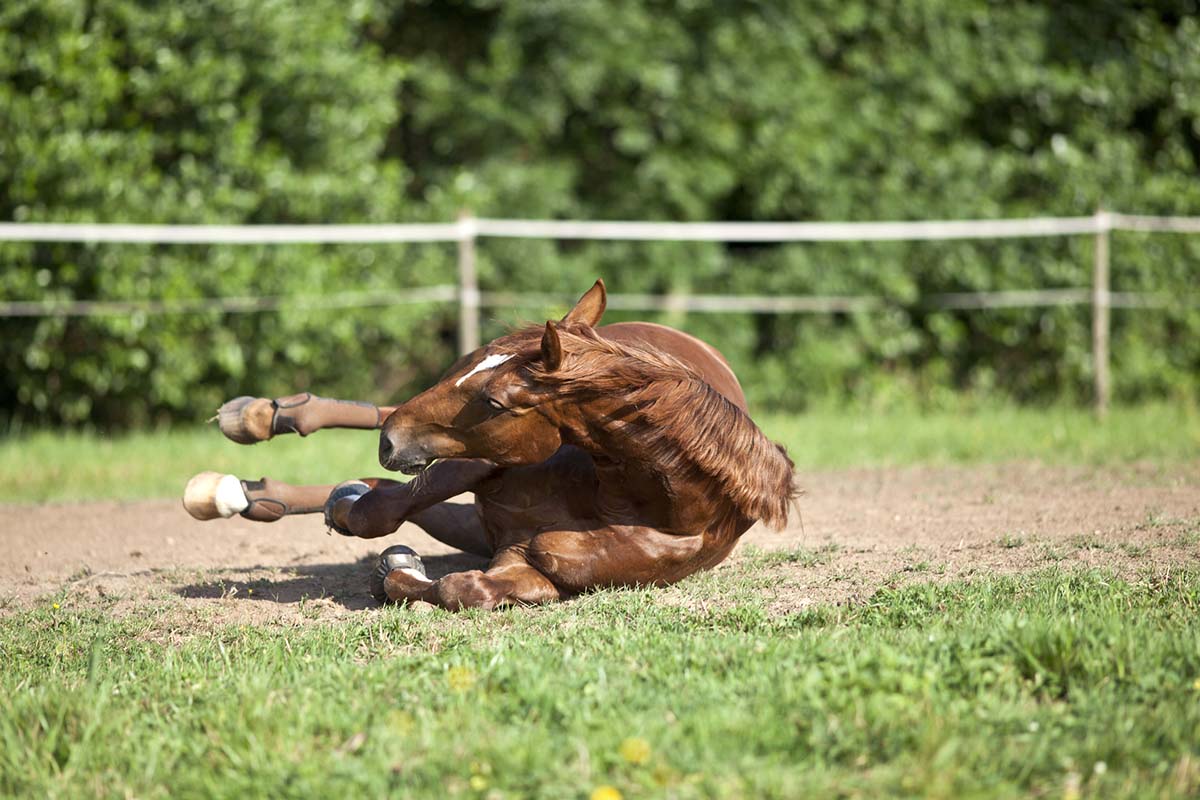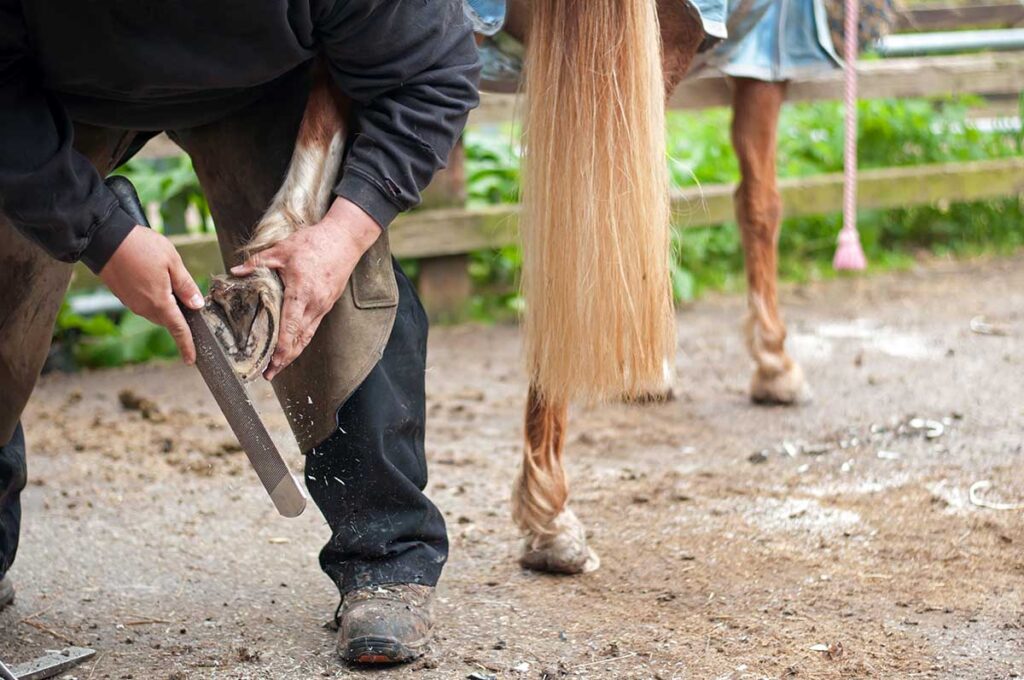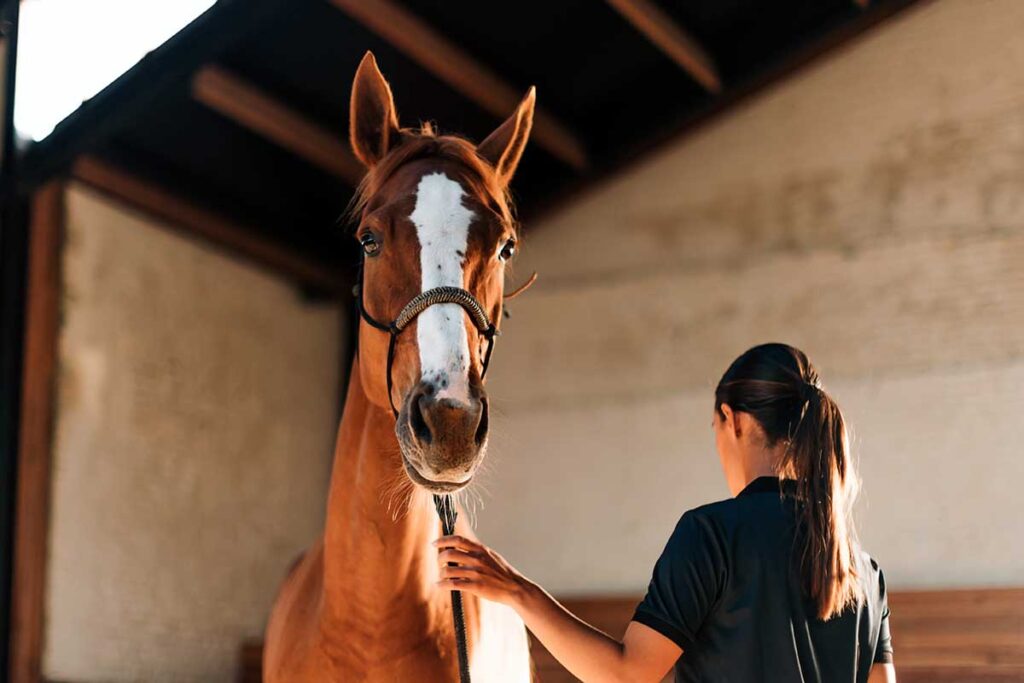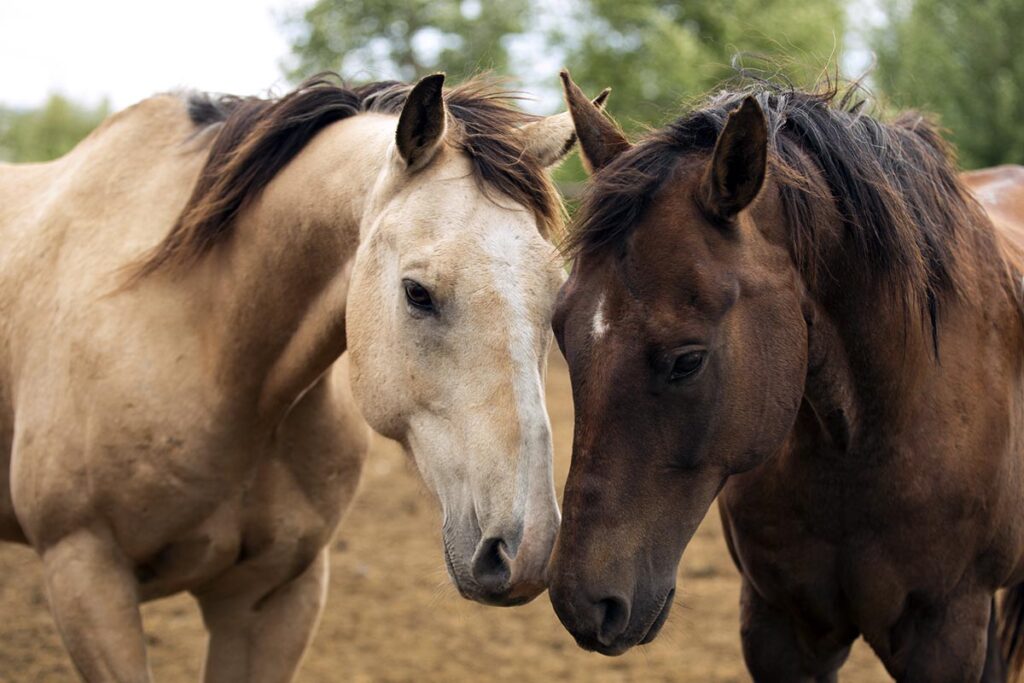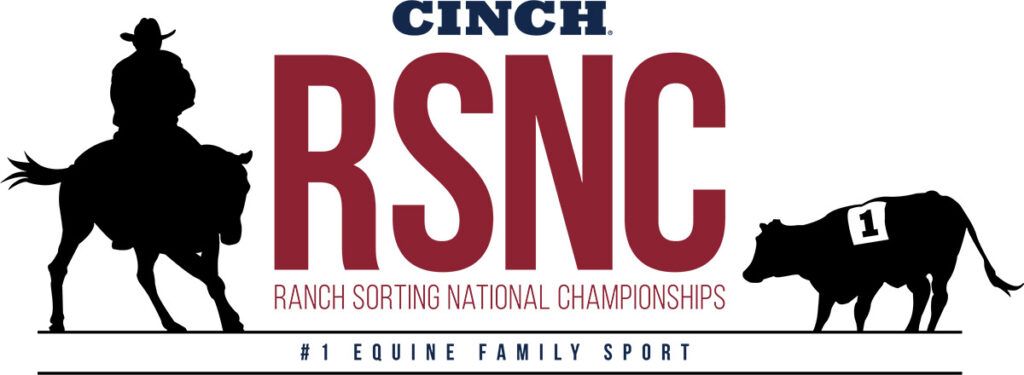Colic: It’s a term all horse owners dread, describing any type of abdominal pain their horses might experience. In fact, it’s not a disease itself but a sign of a serious digestive disorder that can be life-threatening if not recognized and treated promptly. So how do you know a horse is colicking? The signs are varied and include a depressed attitude, loss of appetite, lack of manure production, and manure that’s unusually dry. A horse might also paw, seem distressed, bite or look at his sides, lie down, or roll.
If you notice any of these behaviors in your horse, call your veterinarian right away. He or she will ask you questions to determine the severity of colic and might perform procedures such as:
- Inserting a nasogastric tube through the horse’s nostrils into the stomach to check for a buildup of gas or fluid.
- A rectal exam to feel for impactions, other masses, or gas distentions.
- Checking vital signs such as pulse and gut sounds.
Early detection is key to a successful outcome, making it crucial for anyone involved with horses to understand the signs, causes, and appropriate responses to colic. In this article, we’ll do just that.
What Causes Colic?
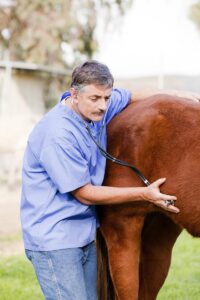
Veterinarians divide the diagnosis of colic into “medical” and “surgical” cases and use the term “lesion” to refer to any abnormality of the gastrointestinal tract.
Surgical colics have zero chance of survival unless a procedure is performed in a timely manner. These include:
- wists of the small intestine, small colon, or large colon.
- Entrapments of intestine in normal or abnormal anatomic locations.
- Intestines protruding through surgical incisions after castration or abdominal surgery.
- Strangulating lipomas, which occur when fatty masses wrap around a piece of bowel.
All of these are classified as “strangulating” lesions because the blood supply has also been severely limited. A piece of bowel that is dying will need to be surgically removed and then the healthy ends of the intestines reattached to each other.
Types of “nonstrangulating” lesions include:
- Displacements of the large colon.
- Obstructions by foreign objects (plastic bags, baling twine).
- Natural obstructions.
- Large, hardened blockages of manure or feed.
- Accumulation of sand in the large colon.
Horses with nonstrangulating lesions often have a better survival rate than horses with strangulating lesions because the bowel is far less compromised. Treatment usually involves removing any blockages and repositioning the intestines, if necessary.
Medical colics are those that can resolve without surgery, but they aren’t necessarily easy to treat. These include:
- “Gas” colic, which is caused by an accumulation of gas that fails to pass through the intestine for a period of time.
- Impactions of concentrated masses of feed.
- Inflammation of the small intestine usually caused by an infection or excessive feed intake.
- Infection of the lining of the abdomen and outer surface of the intestines.
Impaction Colic: The Most Common Culprit
Impaction colic—abdominal pain caused by intestinal blockage with food or other ingested material—is one of the most common types of colic horses can experience. Causes include dehydration, the consumption of foreign materials or large amounts of too-coarse forage, inadequately chewed hay or feed, lack of exercise, and injury to the intestines.
For an impaction in the large intestine, your veterinarian will insert a nasogastric tube to administer water and possibly mineral oil or other medications, such as Epsom salts, which have a laxative effect. Banamine or other non-steroidal anti-inflammatory drugs might help reduce the horse’s discomfort. In more severe or long-standing cases, additional fluids might be administered intravenously. Blockages in the small intestine are more likely to require surgery to remove the obstruction.
How To Prevent Impaction Colic in Horses
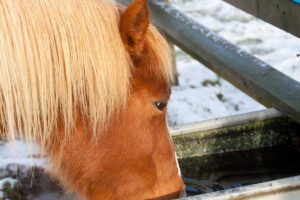
As we’ve already discussed, impaction colics occur when a mass of foodstuff gets lodged within a horse’s gut, blocking the flow of digestive materials. This can happen when food is inadequately chewed or is too fibrous to be broken down efficiently via digestion. The slowing of gut function resulting from inactivity can also lead to impactions. Regardless of the cause, the end result is the same: a miserable horse with a painful belly.
Impaction colics are more common in winter, when horses eat more dry hay and might drink less water, but they can occur at any time of year. Reduce your horse’s risk by keeping up with a few basic management measures:
Guard against dehydration. Getting a horse to drink enough water seems to be more of a worry in the heat of summer, but hydration is important year-round. Ideally, a horse will drink 8 to 12 gallons of water a day. If he takes in less, he might not produce enough saliva to adequately lubricate his feed as he chews, and impactions become more likely. Of course, your horse needs continuous access to fresh water, and in the winter that might mean adding a bucket heater or taking other steps to prevent freezing. You can also encourage him to drink by offering water containing dissolved electrolytes in addition to a bucket of plain water. If you’re not sure your horse is drinking enough water, you can check him for dehydration by using a skin-pinch test: Grab a fold of skin on the point of the shoulder and pull it away from your horse. Let the skin go and count the seconds until it snaps back flat. In an adequately hydrated horse, it will return in one or two seconds. Any longer indicates dehydration, and a delay of six to 10 seconds warrants a call to your veterinarian.
Monitor your forage quality. As you work your way through your hay supply this winter, pay attention to the quality of each bale. Coarse and stemmy forage is difficult to digest and can make a horse more susceptible to impactions. If your only remaining hay is poor quality, consider investing in a new shipment or switching to a complete feed or perhaps hay cubes. Soaking coarse hay may increase its digestibility a bit, but steaming it will improve it even more.
Schedule regular dental exams. A horse whose teeth are not grinding his feed adequately is swallowing larger particles and longer stems, which are more likely to pass through the stomach and small intestine undigested and develop into blockages. Schedule routine dental examinations at least once a year for an average adult horse, or every six months or more for older horses and those who have had tooth troubles in the past. Your veterinarian will float your horse’s teeth–rasp them to remove sharp edges–and look for other signs of impending trouble. In older horses, tooth loss or excessive dental wear may necessitate a special diet to help avoid impaction.
Provide plenty of opportunities for exercise. Even if you keep up your regular riding schedule during the cold-weather months, turn your horse out as much as the weather allows. Grazing and walking in a pasture helps keep ingesta moving through his digestive tract. Horses that live in pastures are less likely to experience impactions than those kept in stalls, and regular exercise will help keep any horse healthier.
Keep up a well-planned deworming schedule. The damage internal parasites can do to a horse’s intestinal walls can cause several health issues, including an increased risk of impaction colic. Fecal egg counts can help you to monitor the parasite loads carried by each horse in your care, and your veterinarian can help you devise a deworming schedule appropriate for your horse.
Take-Home Message
Colic is a common condition that can affect horses of any age or breed. Do your horse a favor by knowing the causes and signs of colic, as well as preventive measures you can take to try to reduce the risk of it occurring. And, as always, contact your veterinarian right away if your horse shows telltale signs of abdominal pain.
Related Video: What Is Colic?

